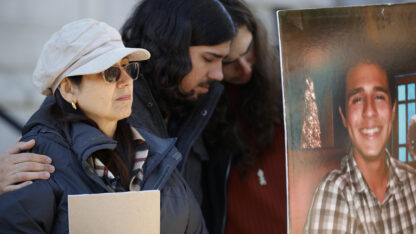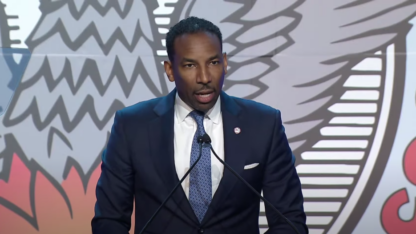Officials advance plans to build Atlanta’s public safety training facility
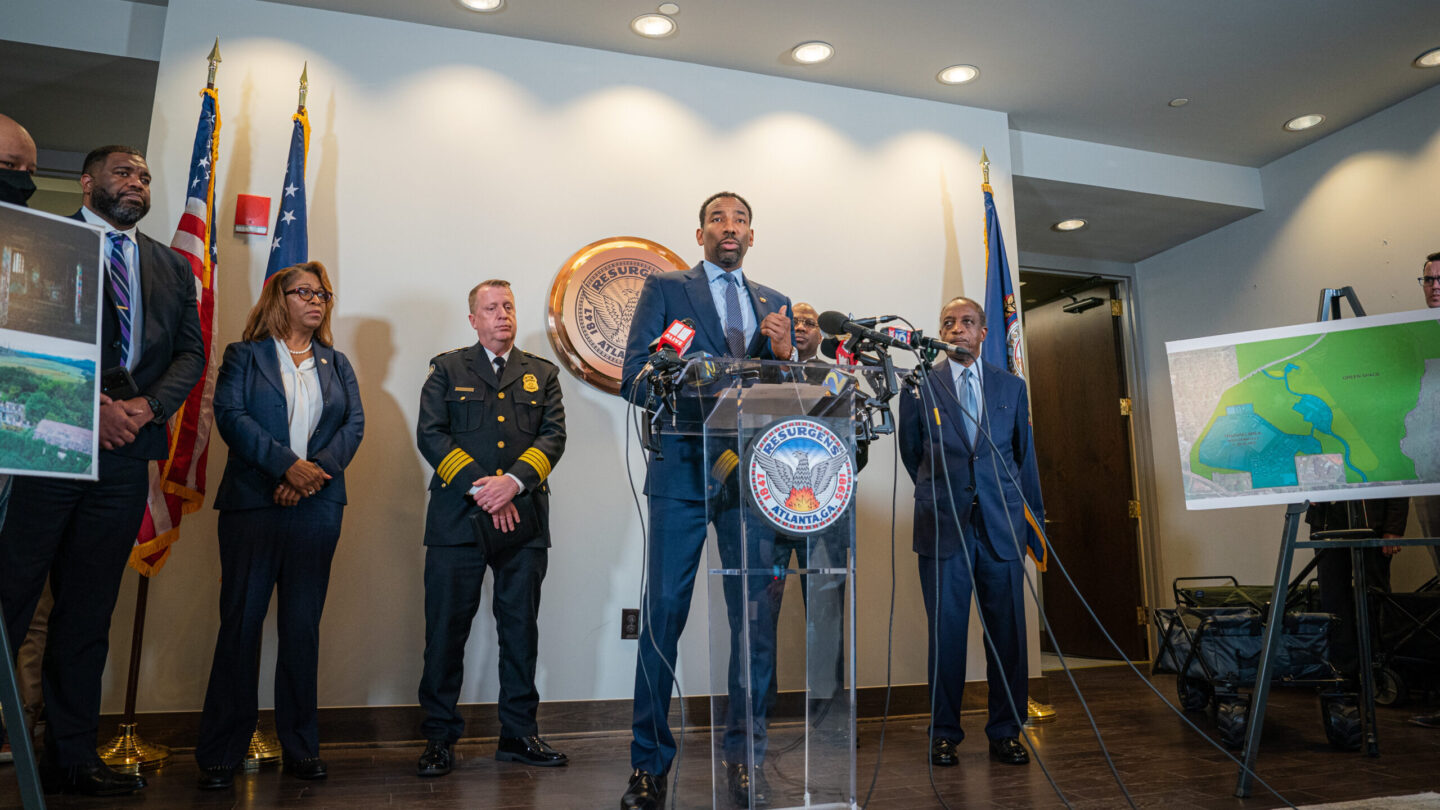
Atlanta Mayor Andre Dickens pledged to enact certain environmental protections after signing a memorandum of understanding with DeKalb County to move forward with the construction of a $90 million public safety training facility in the South River Forest.
While the changes are being touted as a compromise from the plan that was talked about in early 2021, no new compromises have been made.
The announcement at Atlanta City Hall on Tuesday comes in the wake of intense protests against the so-called “Cop City” over the past two weeks due to the fatal shooting of an environmental activist, Manuel Esteban Paez Teran, who authorities say shot a state trooper during a raid at the proposed site.
Law enforcement allegedly fired at Teran in self-defense, but protestors say they don’t believe their version of events, noting a lack of body camera footage from the Jan. 18 incident.
Dickens, however, says the facility is needed because Atlanta “has the most extensive training requirements in the Southeast.”
“Our training includes vital areas like de-escalation training techniques, mental health, community-oriented policing, crisis intervention training, as well as civil rights history education,” Dickens said. “This training needs space, and that’s exactly what this training center is going to offer.”
The memorandum of understanding includes ten recommendations from a community advisory committee, such as an entrance on Constitution Road, public parking, lighting, sidewalks and a 100-foot natural buffer. In addition, it requires the city to replace any removed trees with 100 new hardwood plantings on the site and eliminate a proposed explosives range.
Dickens emphasized that roughly 300 acres of the total property will be set aside for trails, ball fields and picnic areas for the public, with the remaining 85 acres being used to build the training facility. The tract is owned by the City of Atlanta in unincorporated DeKalb County. Dickens said it is filled with rubble and overgrown with invasive species, not hardwood trees, because it was cleared decades ago for a former state prison farm.
“This is essentially a huge park about the size of Atlanta’s largest park, and it will be a park that will have a training center on a modest footprint within it,” Dickens said. “This is Atlanta, and we know forests. This facility would not be built over a forest.”
Dickens said the community advisory committee, which includes representatives from neighborhoods immediately adjacent to the site in DeKalb County and the City of Atlanta, is actively working to improve it. He said that through engagement with the committee, the city also plans to use the site to house a community watch training program.
“The committee will continue to be engaged to seek input on the project as it develops,” Dickens said. “This will be a true community center.”
DeKalb County CEO Michael Thurmond said that at the end of the day, the county is the official authority tasked with protecting the South River Forest.
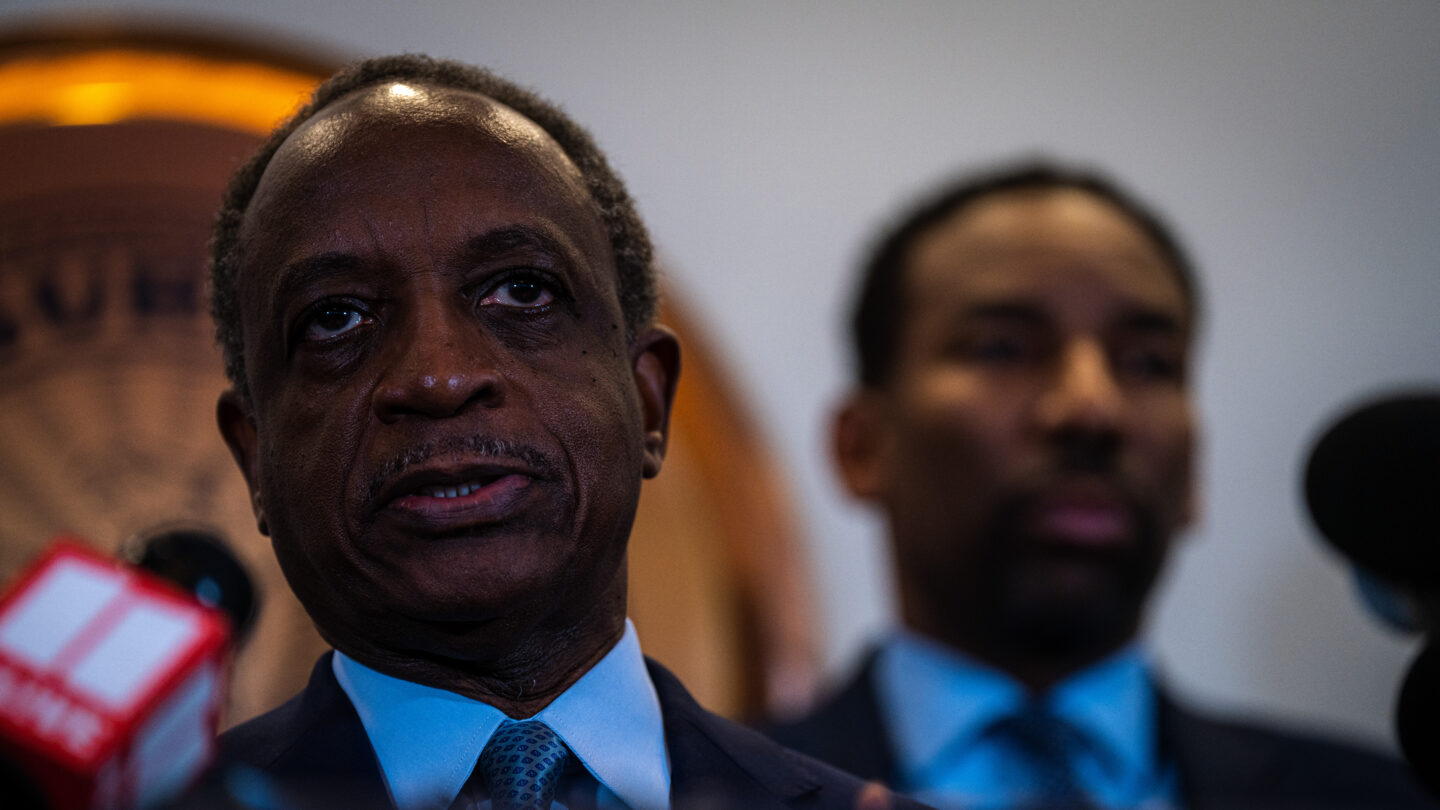
“The land development plan and process is primarily a process to protect adjacent landowners as well as the environment,” Thurmond said. “That was why this took 11 months to objectively do the analysis and research within human understanding to protect that resource. And know this, DeKalb County will continue to be an aggressive and engaged steward of the South River Forest. This is the beginning of a process and not the end.”
Meanwhile, dozens of protestors gathered outside Atlanta City Hall with signs that read, “Stop Cop City.” Several others, who were denied entrance to the press conference, stood in the hall chanting, “This is how Democracy dies. We will never compromise.”
Jasmine Burnett with the nonprofit Community Movement Builders was one of the protestors outside. She said those who oppose the program continue to be headstrong in their demands.
“This whole charade of a press conference was just a way for them to try to manufacture consent around this idea to try to convince people that this is what folks want, that this is something better than what was offered the day before, and all of that is lies consistent with the way that they’ve been moving,” Burnett said. “There’s been no change in our plans to continue to fight and stop ‘Cop City.’”
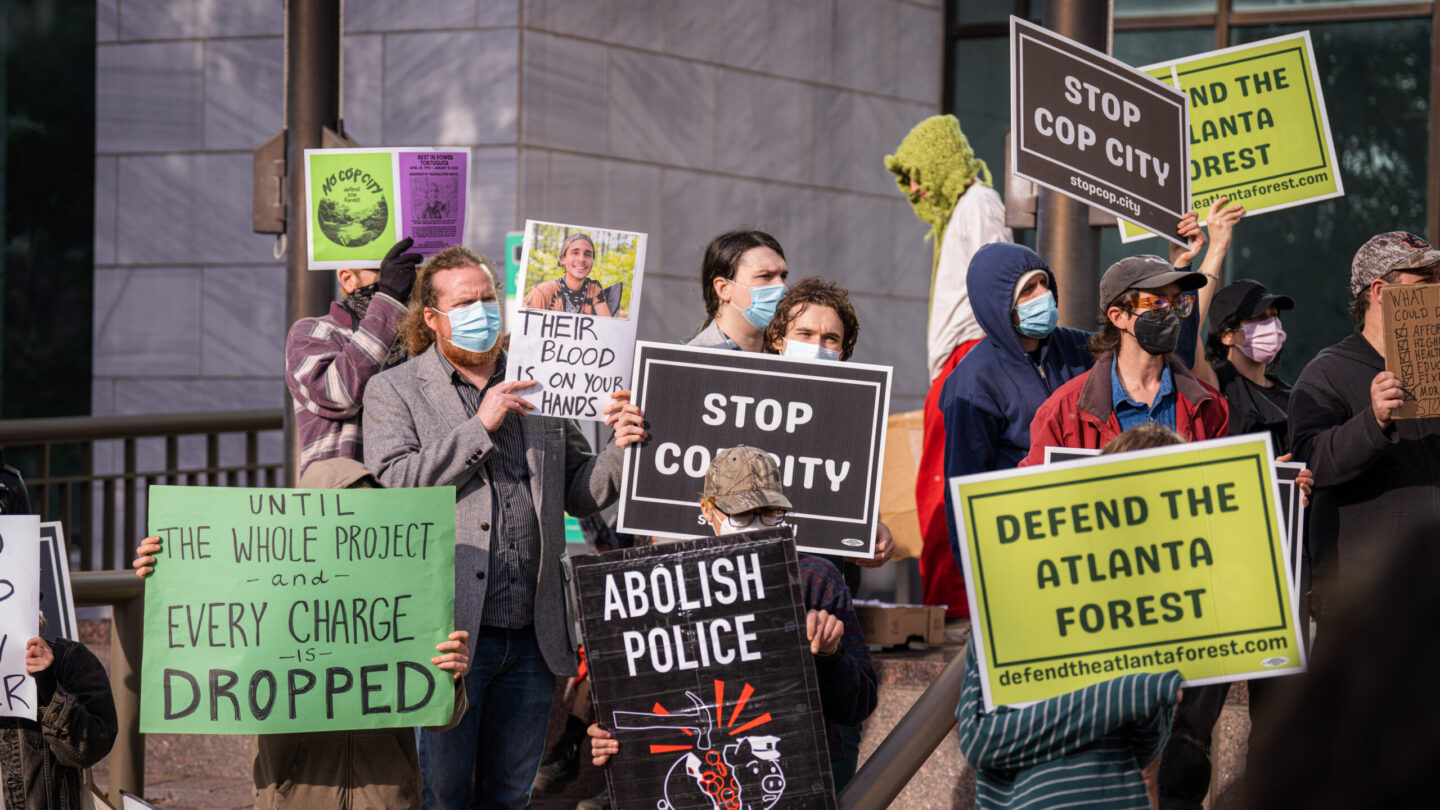
Another protestor named Timothy, who declined to give his last name, said while officials have not reached out to protestors, they’ve made calls, sent emails and held dozens of demonstrations to show their opposition to the project. The ten-year Atlanta resident added that according to the police department’s own documents, 43% of the officers who are being recruited to train at the facility are from out of state.
“The fact that they’re talking about a compromise after they killed a protester in the woods, the compromise is their fiction that they think is going to work to kill the momentum of what is an extremely strong movement, a movement that’s getting stronger every day,” Timothy said.
Sierra Club Chapter Interim Director Gina Webber agrees. The organization is the largest grassroots environmental organization in the state.
“Moving the pieces around or pledging more greenspace in the project’s footprint does not change the fundamental disagreement over this unnecessary facility,” Webber stated. “The forest is too important to the health of our communities to destroy even a portion of it. The Sierra Club Georgia Chapter reiterates its call for city officials to cancel the lease with the Atlanta Police Foundation and protect the entire South River Forest.”
The City Council approved the training center in 2021 after 17 hours of public comments — the majority of which in opposition to the project. Some locals cited noise concerns, while others said the planned destruction of nature would significantly undermine the city’s efforts to preserve its famed tree canopy and exacerbate local flooding risks. Many activists also oppose spending so much money on a police facility that would be surrounded by poor, majority-Black neighborhoods in a city with one of the nation’s highest degrees of wealth inequality.
Officials on Tuesday did not say when they expect construction to begin.
A request for comment on whether the project would be expanded in the future was not immediately answered.
Reporter Emily Wu Pearson contributed to this article.
